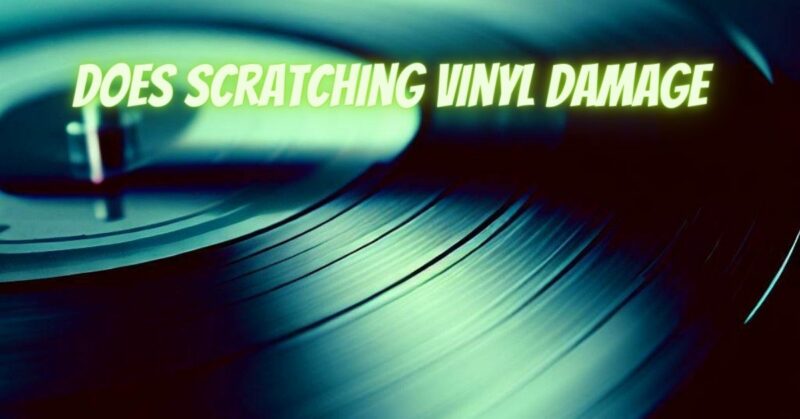Vinyl records are a beloved format for music lovers, but they can be fragile and easily damaged. One of the most common ways that vinyl records get damaged is by scratching. But does scratching vinyl actually damage it?
The answer is yes, scratching vinyl can damage it. The stylus on a turntable is a very fine needle that is used to read the grooves in the record. When the stylus encounters a scratch, it can cause the groove to become misaligned or even damaged. This can lead to pops, clicks, and other audio distortions during playback. In severe cases, a scratch can even cause the record to skip or become unplayable.
The severity of the damage caused by scratching depends on the depth and length of the scratch. Surface scratches are the least harmful, as they only affect the top layer of the record. Deeper scratches that penetrate the grooves can cause more significant damage.
In addition to the damage caused to the record itself, scratching can also damage the stylus on the turntable. The stylus is made of a very hard material, such as diamond or sapphire, but it can still be worn down by repeated contact with scratches. A damaged stylus can cause further damage to records, and it may eventually need to be replaced.
So, what can you do to prevent scratching your vinyl records? Here are a few tips:
- Handle your records carefully. Avoid dropping them or scratching them with sharp objects.
- Keep your records clean. Dust and dirt can cause scratches, so make sure to clean your records regularly with a soft cloth.
- Use a good turntable. A turntable with a high-quality stylus will help to reduce the risk of damage to your records.
- Avoid scratching your records on purpose. If you’re a DJ, be careful when scratching your records. Use a light touch and avoid making deep scratches.
By following these tips, you can help to keep your vinyl records in good condition and prevent them from being damaged by scratching.
Here are some additional things to keep in mind:
- The type of scratch can also affect the amount of damage it causes. A deep, jagged scratch is more likely to cause damage than a shallow, smooth scratch.
- The age of the record can also be a factor. Older records are more likely to be damaged by scratching, as the grooves are more fragile.
- The quality of the record can also affect how much damage it can withstand. A well-made record is more likely to withstand scratching than a poorly made record.
If you have a scratched vinyl record, it may still be playable. However, the sound quality may be affected. If the scratch is severe, the record may skip or become unplayable. In some cases, it may be possible to repair a scratched record. However, this is usually a specialized process that should be done by a professional.
The best way to prevent scratching your vinyl records is to handle them with care and avoid playing them on a damaged turntable. By following these tips, you can help to keep your vinyl records in good condition for years to come.


